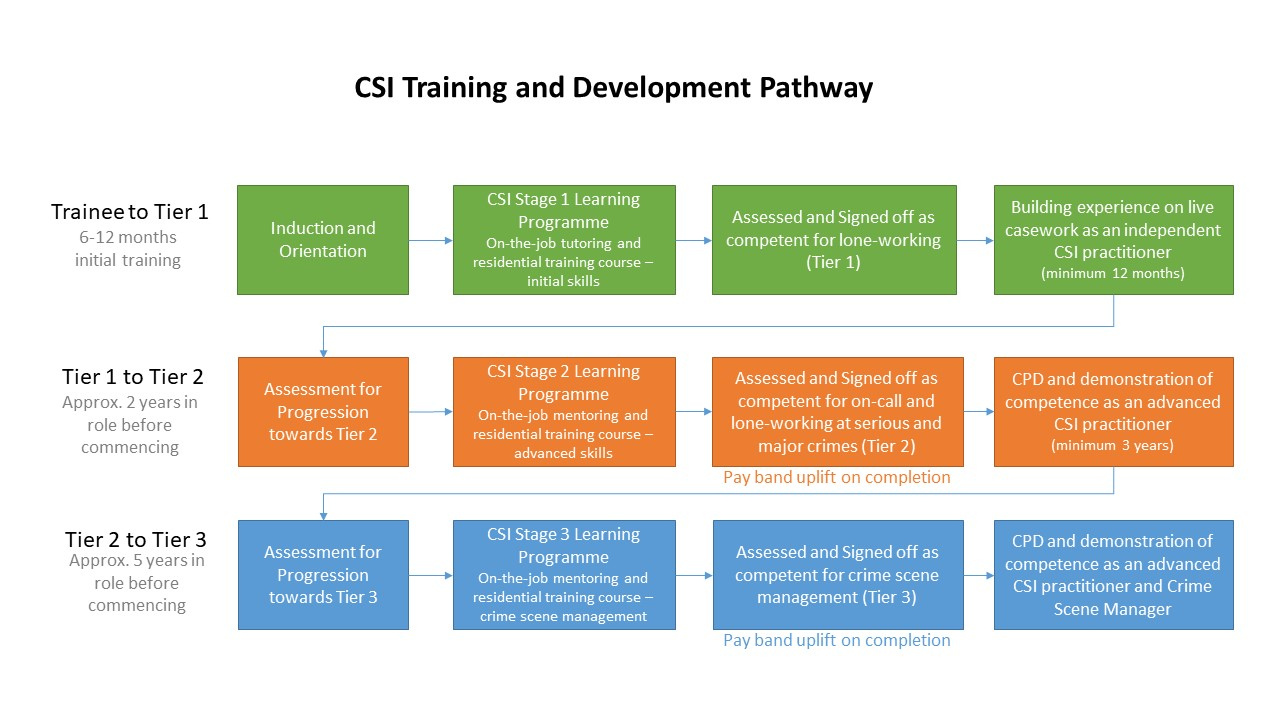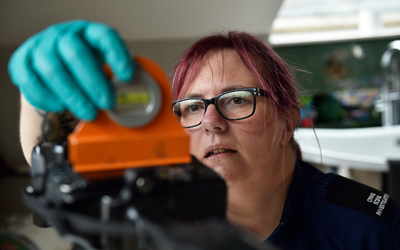Crime Scene Investigation CSI
You will likely have seen or been inspired by TV shows like CSI and Silent Witness, but what is the reality of working in Crime Scene Investigation (CSI)?
Contrary to what you might think, whilst a scientific knowledge base is useful, a degree or qualification in forensics is not essential.
A career in CSI could be for you if …
… you are someone who enjoys puzzles and has a problem solving mentality.
… you are curious, with a logical inquisitive mind set and a desire to get to the truth.
… you can multitask, as you’ll work on many cases at the same time.
… you enjoy interacting with people; possessing an ability to communicate well with colleagues and the public.
CSI TVP
Our CSI Unit consists of six teams strategically located across the three counties of TVP and serves to support investigations from crime scene to court. The key functions of the unit are to Assess, Search, Identify, Recover, Record and Select Evidence from scenes of crime for forensic purposes.
The unit provides 24/7 service, all year round, including bank holidays. Normal working hours are Monday to Sunday: 0730 – 2300 hours. Outside these times, the Unit operates an on-call system for major/serious crime scene attendance. CSIs are authorised to attend scenes based upon their level of training and competency.
Activities carried out by CSI are categorised into three competency profiles which can be developed as part of a progressive career pathway:
- Tier 1 CSIs deal with volume crime. You will complete comprehensive scientific assessment and examination of crime scenes and vehicles. This includes photography, documentation, sampling and evidence recovery as appropriate to the scene examination. Evidence recovery covers a wide spectrum, such as tool marks, trace evidence particulates, hairs and fibres, fingerprints, footwear impressions, DNA Recovery, presumptive blood testing, and forensic packaging of physical items for further testing and examination. You will work on shift, so will be eligible for shift allowances.
- Tier 2 CSIs include Tier 1 capabilities but also deal with major/serious crime and more complex investigations. Tier 2 CSIs can be ‘on call’ and deployed to proactive or covert scenes – as you may be ‘on call’ you are eligible for on call and shift allowances.
- Tier 3 CSIs include the capabilities of Tier 1 & 2, plus will have developed to become a Crime Scene Manager. As with Tier 2 there is an expectation of being on the ‘on call’ rota at this level. You will manage serious and major crime scenes, complex investigations and proactive/covert deployments. Your experience means you will help develop forensic strategies, recording of policy decisions, management of resources and subsequent submission of exhibits.
Meet our CSIs
Where could you be working?
We have 6 hubs around the force, covering each county:
- Berkshire: Loddon Valley and Slough
- Buckinghamshire: Aylesbury and Milton Keynes
- Oxfordshire: Banbury and Oxford
Working Style hours/patterns
If you are looking for a Monday to Friday 9-5, life as a CSI may not be for you. If you are looking for team work, our CSIs may sometimes work together on a scene, but often work alone – you need to be comfortable with that. If you are seeking variety and the unpredictable, then life as a CSI will deliver these.
Training
Our new CSIs have a six to twelve month training pathway and will be guided by an experienced tutor. You will be based at your designated location, with training delivered on the job, plus an external residential course. Over time you will build your capability and experience, working through the Tiers. If you are a transferee CSI your skills will be assessed and signed off at the appropriate level.

Application Process
- Application via CV submission
- Assessment
- Interview
- Provisional Offer – followed by vetting, medical checks, references
- Formal Offer
Join our team – Apply today
Discover the latest Forensics opportunities at TVP on our Vacancies portal.



 Facebook
Facebook
 Twitter
Twitter
 Linkedin
Linkedin
 Instagram
Instagram